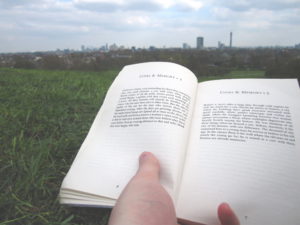 I thought I would have liked this more than I did. I like most of Calvino’s books, and in this one the writing is absolutely beautiful, the observations on cities are clever and insightful, and the structure is innovative. But somehow, for me, all of these ingredients didn’t add up to a very rewarding whole.
I thought I would have liked this more than I did. I like most of Calvino’s books, and in this one the writing is absolutely beautiful, the observations on cities are clever and insightful, and the structure is innovative. But somehow, for me, all of these ingredients didn’t add up to a very rewarding whole.
I think the problem was the lack of plot. The structure of the book is a series of one- or two-page descriptions of different imaginary cities, with occasional philosophical conversations between Marco Polo and Kublai Khan in between. Nothing happens, there is no progress, and nothing much is revealed about the characters. It’s all a long intellectual game. The flights of fancy were certainly very impressive, but I kept finding that my mind was wandering as I read, and I had to go back and start at the top of the page, something that has rarely happened to me since the days of prescribed reading at school and university.
I was reading quite late at night mostly, so maybe that was the problem, but again that is not normally an issue for me. If I like a book, I can concentrate on it even when I am dog tired. This one just failed to hold my interest, as much as I loved the premise, the writing and the ideas. The cities, as different as they were, just began to sound the same, and the descriptions became repetitive.
I guess Calvino’s point was to describe general attributes of the city by describing different specific cities that embody an aspect of it in the extreme – for example in Leonia people refashion their lives every day, throwing everything out and using new clothes, fresh sheets, etc. “So you begin to wonder if Leonia’s true passion is really, as they say, the enjoyment of new and different things, and not, instead, the joy of expelling, discarding, cleansing itself of a recurrent impurity.” This is a great insight, beautifully expressed, and the book is full of things like this. But there are no real people doing things.
I suppose this book made me realise that while experimentation is great, and beauty and cleverness go a long way, the more prosaic basics like plot and character do go a long way.



There is 1 comment